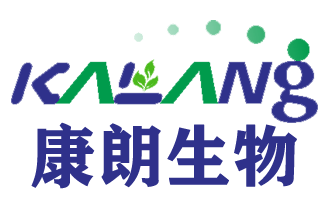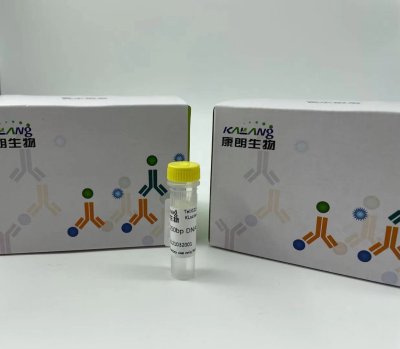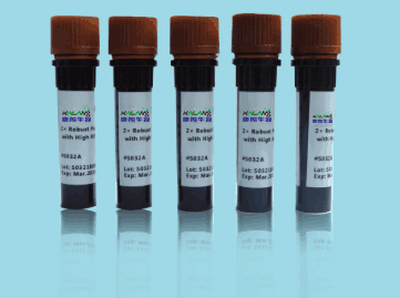QQ:3002763590


客服电话:021-61998208
Anti CDKN1A polyclonal antibody
CDKN1A抗体
Anti CDKN1A polyclonal antibodyCDKN1A (p21, CIP1, WAF1) is a cyclin-dependent kinase inhibitor. CDKN1A binds to and inhibits the activity of cyclin-CDK2 or -CDK4 complexes, and thus functions as a regulator of cell cycle progression at the G1 phase. The expression of CDKN1A is induced by wild-type but not mutant p53 protein, through which CDKN1A mediates the p53-dependent cell cycle G1 phase arrest in response to a variety of stress stimuli. CDKN1A can interact with proliferating cell nuclear antigen (PCNA), and plays a regulatory role in S phase DNA replication and DNA damage repair. CDKN1A was reported to be specifically cleaved by CASP3-like caspases, which thus leads to a dramatic activation of CDK2, and may be instrumental in the execution of apoptosis following caspase activation. Two alternatively spliced variants, which encode an identical protein, have been reported.
Anti DAO polyclonal antibody
DAO抗体
Anti DAO polyclonal antibodyD-amino acid oxidase (DAO),with MW of 39 kDa, is a flavoprotein which uses flavin adenine dinucleotide as its prosthetic group. Its substrates include a wide variety of D-amino acids, but it is inactive on the naturally occurring L-amino acids. DAO may play a role in the pathophysiology of schizophrenia and act as a detoxifying agent which removes D-amino acids that accumulate during aging.
Anti DKK1 polyclonal antibody
DKK1抗体
Anti DKK1 polyclonal antibodyDKK1, also named a SK and Dickkopf-1, belongs to the dickkopf family. DKKs play an important role in vertebrate development, where they locally inhibit Wnt regulated processes such as antero-posterior axial patterning, limb development, somitogenesis and eye formation. In the adult, Dkks are implicated in bone formation and bone disease, cancer and Alzheimer disease. SDS-PAGE and Western blot analysis demonstrated that DKK1 is expressed as a 35-kD doublet protein, which is larger than the deduced molecular mass of 26 kD. Sometime DKK1 is expressed as a 42- to 50-kD secreted protein, with little change observed after glycanase treatment.
Anti DKK2 polyclonal antibody
DKK2抗体
Anti DKK2 polyclonal antibodyhe Wnt genes are a group of well conserved, cysteine-rich secreted glycoproteins that are required for numerous develop-mental processes including embryogenesis, asymmetric cell division and central nervous system (CNS) patternins. Wnt association with the seven membrane spanning receptor Frizzled, activates Dishevelled, which downregulates glycogen synthase kinase (GSK) through serine phosphorylation, causing the accumulation of b-Catenin and subsequent regulation of developmentally significant Wnt target genes. The Dickkopf family of secreted inhibitors of Wnt signaling ensures proper morphological development by antagonizing different stages of the Wnt cascade. Dkk-2 (Dickkopf-2) is a 259-amino acid secreted protein that is composed of an N-terminal signal peptide and 2 conserved cysteine-rich domains, which are separated by a 50-55-amino acid linker region.
Anti EGR1 polyclonal antibody
EGR1抗体
Anti EGR1 polyclonal antibodyEGR1, also named as Early growth response protein 1, is a 543 amino acid protein, which belongs to the EGR C2H2-type zinc-finger protein family. EGR1 as a transcriptional regulator recognizes and binds to the DNA sequence 5'-GCG(T/G)GGGCG-3'(EGR-site) in the promoter region of target genes and binds double-stranded target DNA, irrespective of the cytosine methylation status. EGR1 regulates the transcription of numerous target genes, and thereby plays an important role in regulating the response to growth factors, DNA damage, and ischemia. EGR1 activates expression of p53/TP53 and TGFB1, and thereby helps prevent tumor formation and plays a role in the regulation of cell survival, proliferation and cell death. Egr1 is suggested to be a 55-kDa protein according to the translation of its coding sequence. Analysis of cytoplasmic and nuclear fractions of normal and irradiated native CNS tissue by Western blotting revealed a 110-kDa band for Egr1 localized in the
Anti ERN1 polyclonal antibody
ERN1抗体
Anti ERN1 polyclonal antibodyThe accumulation of unfolded proteins within the endoplasmic recticulum (ER) of yeast and mammalian cells activates the unfolded protein response (UPR) pathway and leads to the transcription of ER-specific genes involved in protein folding. The activation of the UPR requires the ER transmembrane kinase IRE1p (for inositol-requiring and ER-to-nucleus signaling protein). IRE1α and IRE1β are two mammalian homologs of the yeast IRE1p. These related proteins localize to the ER lumen and contain both a short transmembrane domain that spans the ER membrane and a cytosolic Ser/Thr kinase domain. IRE1 activation involves the oligomerization and trans-phosphorylation of the cytosolic portion of the proteins, which then potentiates its intrinsic kinase activity and, in turn, stimulates transcription of UPR-targeted genes. In response to stress, sensors for the ER mammalian cells activate IRE1α and IRE1β, which then results in the phosphorylation of JNK (Jun N-Terminal
Anti ENG polyclonal antibody
ENG抗体
Anti ENG polyclonal antibodyEndoglin (ENG, CD105) is a homodimeric cell membrane glycoprotein of 180 kDa, composed of disulphide-linked subunits of 95 kDa. Endoglin is a proliferation-associated and hypoxia-inducible protein mainly expressed on vascular endothelial cells. It acts as an accessory receptor for transforming growth factor beta (TFG-β) and is involved in vascular development and remodelling. The important role of Endoglin in angiogenesis and in tumor progression makes it an ideal target for antiangiogenic therapy and a good marker for tumor prognosis. (PMID: 1326540,14528280,21737653,12773481)
Anti BCL2L1 polyclonal antibody
BCL2L1抗体
Anti BCL2L1 polyclonal antibodyBCL2L1 is a member of the BCL-2 protein family. BCL2L1 is expressed as three isoforms, Bcl-X(L),Bcl-X(s) and Bcl-X(beta) , and is located at the outer mitochondrial membrane. The Bcl-X(L) isoform is a 233 amino acid protein, acting as an apoptotic inhibitor. Bcl-XL can forms heterodimers with BAX, BAK or BCL2, and the heterodimerization with BAX does not seem to be required for anti-apoptotic activity. The Bcl-X(s) isoform is a shorter variant that is 178 amino acids in length and lacks a 63 amino acid region (amino acids 126-188), acting as an apoptotic activator. Bcl-X(beta) is a 227 amino acid protein. This antibody can recognize Bcl-XL, Bcl-X(s) and Bcl-X(Beta).
Anti STAT3 polyclonal antibody
STAT3抗体
Anti STAT3 polyclonal antibodySignal transducer and activator of transcription 3 (acute-phase response factor) (STAT3, synonyms: APRF, FLJ20882, MGC16063) is a member of the STAT protein family. In response to cytokines and growth factors, STAT family members are phosphorylated by the receptor associated kinases, and then form homo- or heterodimers that translocate to the cell nucleus where they act as transcription activators. STAT3 is activated through phosphorylation in response to various cytokines and growth factors including IFNs, EGF, IL5, IL6, HGF, LIF and BMP2. STAT3 mediates the expression of a variety of genes in response to cell stimuli, and thus plays a key role in many cellular processes such as cell growth and apoptosis. The small GTPase Rac1 has been shown to bind and regulate the activity of STAT3. This antibody is a rabbit polyclonal antibody raised against residues near the N terminus of human STAT3. STAT3 exists three isoforms and the molecular weight of each isofor
Anti Bcl2 polyclonal antibody
Bcl2抗体
Anti Bcl2 polyclonal antibodyBCL2 belongs to the Bcl-2 family. It suppresses apoptosis in a variety of cell systems including factor-dependent lymphohematopoietic and neural cells. BCL2 regulates cell death by controlling the mitochondrial membrane permeability (PMID: 10365962). It appears to function in a feedback loop system with caspases. BCL2 inhibits caspase activity either by preventing the release of cytochrome c from the mitochondria and/or by binding to the apoptosis-activating factor (APAF-1) (PMID: 10444588). This antibody is not suitable for rat and mouse species.
最新动态
-

Anti-GNGT1 KL20092-001(50ul)
2021-10-11 -

Anti-GNGT1 antibody(50ul) KL20093-001
2021-10-11 -

α-tubulin mouse Monoclonal Antibody
2021-01-08 -

α-tubulin mouse Monoclonal Antibody(8F11)
2021-01-08
热门标签
- Histone H3 rabbit Polyclonal Antibody Histone H3抗体
- EGFR rabbit Polyclonal Antibody EGFR抗体
- Cy3 Conjugated
- AbFluor™ 555 Conjugated
- AbFluor™ 680 Conjugated
- AbFluor™ 350 Conjugated
- AbFluor™ 647 Conjugated
- AbFluor™ 594 Conjugated
- AbFluor™ 405 Conjugated
- Cy5 Conjugated
- AbFluor™ 488 Conjugated
- Cyclophilin B抗体 Cyclophilin B Monoclonal Antibody(2B10)
- COX IV抗体 COX IV Monoclonal Antibody(6C8)
- PCNA抗体 PCNA Monoclonal Antibody(12D10)
- FAK rabbit Polyclonal Antibody FAK抗体
邮箱:3002763590@qq.com
电话:021-61998208

扫码关注微信公众号















